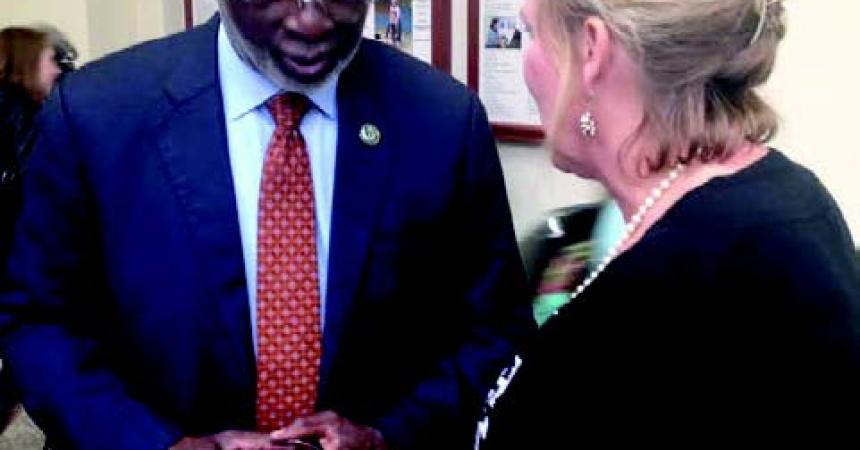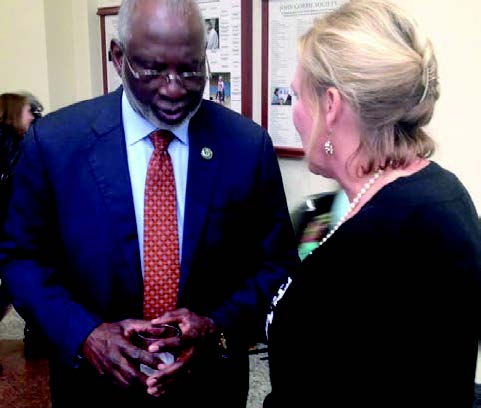
Former surgeon general makes plea for equity in healthcare

Davis Satcher, the 16th Surgeon General of the U.S, spent the last hour of his Tallahassee visit at a
reception. Photo by St. Clair Murraine
By St. Clair Murraine
Outlook staff writer
Leadership and equity are two important elements that must be in place if any serious dent is going to be made in health disparities, the 16th Surgeon General of the United States told a nearly-packed auditorium at FSU’s College of Medicine.
David Satcher, who overcame a case of whopping cough as a child to become a renowned physician, spoke at the monthly Grand Rounds event where he beseeched his audience to get involved in the mission that he’s undertaken for several years.
“We need leaders who know enough, who will do enough and who will persist in doing a good job,” Satcher said. “I hope some of you will answer that call.”
Satcher’s message was on point, said Joy Anderson, Executive director of Gadsden County Healthy Start Coalition. She acknowledged that awareness in her community would be a good start.
“I think you’re going to have to get out in the community and make sure the community has an understanding of what health equity really means,” Anderson said. “People always hear that if you’re talking about the African Americans you’re doing four to five times worse than the White community. But that’s all that’s said.
“They don’t know how there is ever going to be a difference made so if the average person understands that working toward health equity will help you eliminate those disparities, then you might have those people speak up about achieving health equity in their communities.”
Satcher made his case for eliminating health disparities by pointing to several studies that he’s conducted or was a part of.
In one of his studies, he found that in 2000 there could have been 83,500 fewer Black deaths if the playing field was even for all races. Breaking down the same study, he said that diabetes would not have claimed 22,000 Blacks without the disparity seen when compared to Whites.
He suggested that if more doctors were involved in public healthcare the vast difference would be less. More leadership from elected officials and clergy would also help, he said.
“We are going to have to get involved with public health; do community medicine to create conditions for a community to be healthy,” Satcher said. “You can fight with medicine but children (in Flint, Mich.) are drinking lead in unsafe water.
“Sometimes we are isolated; we do our thing,” he said. “Take care of patients. But if we want to change some of these things we’ve got to have new partnerships. That’s what has to happen.”







